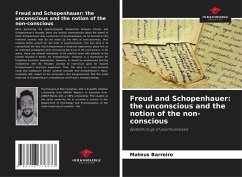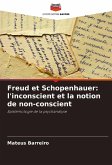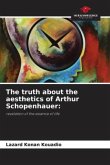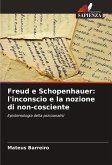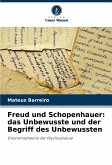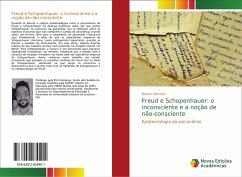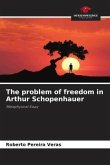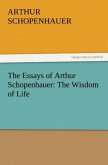When discussing the epistemological relationship between Freud's and Schopenhauer's thought, there are various controversies about the extent to which Schopenhauer was a precursor of psychoanalysis, as he focused on the irrational aspects that do not make up the field of consciousness, thus creating fertile ground for the birth of psychoanalysis. The aim here is to substantiate the idea that Schopenhauer's empirical experiences place him as an important protagonist when discussing the issue of the unconscious. In his works, there are several indications of his practical work with patients at the Charité hospital in Berlin. For Schopenhauer, madness is a mechanism for forgetting traumatic experiences. However, it should be emphasised that the relationship with the Freudian concept of repression goes far beyond Schopenhauer's empirical experience. Thus, this work is a cross-sectional study that juxtaposes Freud's cardinal concepts with Schopenhauer's ideas, especially with regard to the encounters and disagreements that the prefix meta has in Schopenhauer's metaphysics and Freud's metapsychology.
Bitte wählen Sie Ihr Anliegen aus.
Rechnungen
Retourenschein anfordern
Bestellstatus
Storno

